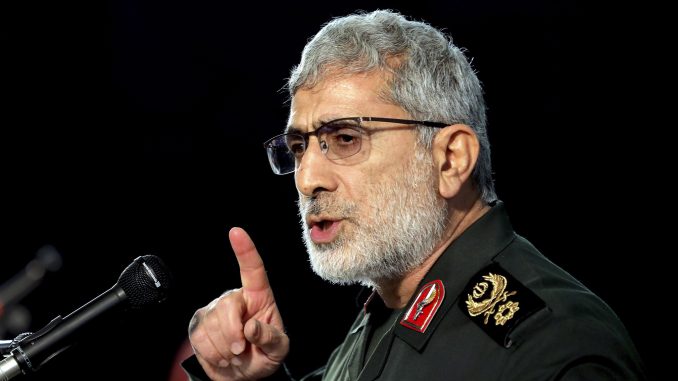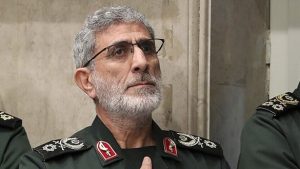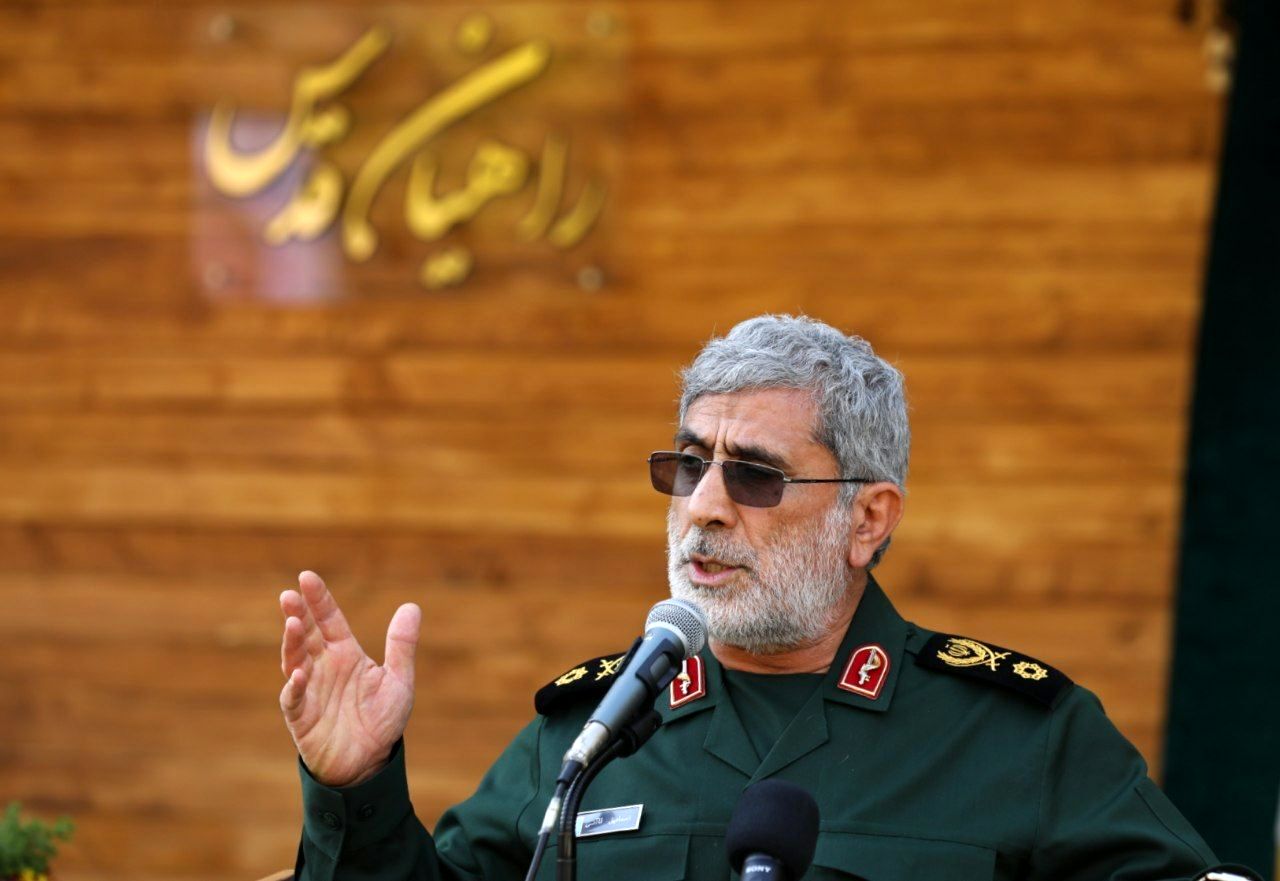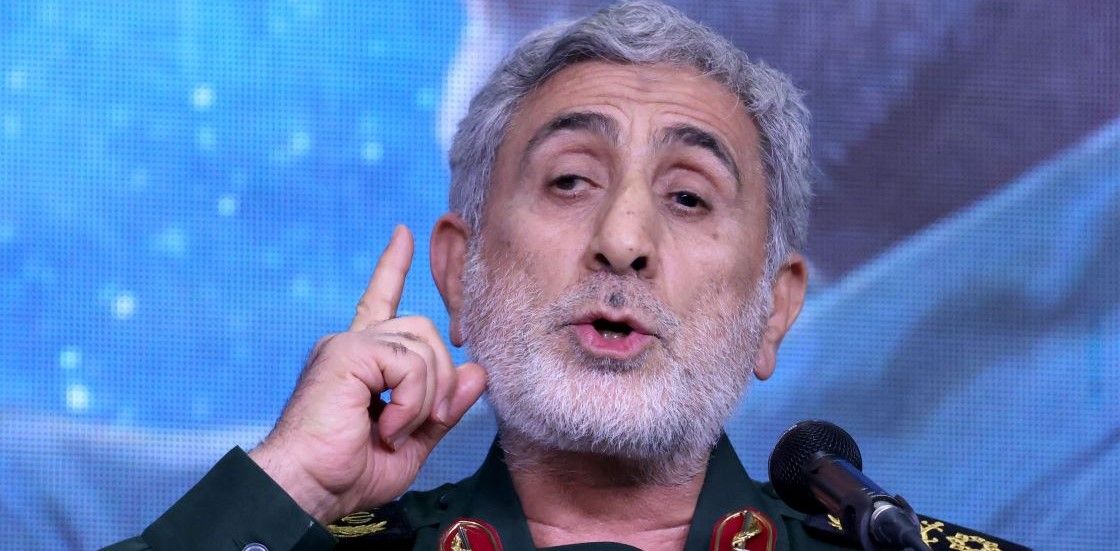
Esmail Qaani has emerged as a pivotal figure in contemporary geopolitics, particularly within the realm of Iran’s military and strategic planning. As the commander of the Quds Force, a unit within the Islamic Revolutionary Guard Corps (IRGC), Qaani’s influence extends beyond mere military operations; it encompasses ideological, political, and diplomatic dimensions that shape Iran’s stance in a complex global landscape. This article aims to provide a comprehensive analysis of Qaani’s role, strategies, and the implications of his leadership for regional stability and international relations.
Who is Esmail Qaani? A Brief Overview

Esmail Qaani was born on March 8, 1957, in Mashhad, Iran. He joined the IRGC shortly after the Islamic Revolution in 1979, quickly rising through the ranks due to his strategic acumen and loyalty to the regime. Following the assassination of Qassem Soleimani in January 2020, Qaani was appointed as the new commander of the Quds Force. His leadership style, characterized by a blend of pragmatism and ideological fervor, has garnered attention both domestically and internationally.
The Role of the Quds Force in Iran’s Military Strategy
The Quds Force plays a crucial role in Iran’s foreign policy, particularly in proxy warfare and asymmetric military operations. Under Qaani’s command, the Quds Force continues to support groups such as Hezbollah in Lebanon, Hamas in Gaza, and various militia groups in Iraq and Syria. This support is not just military; it also includes financial aid, training, and logistical assistance. Qaani’s strategy focuses on building a network of allied groups that can exert influence and respond to threats in the region.
Strategic Objectives of Qaani’s Leadership
Qaani’s leadership is underscored by several key objectives:
- Regional Influence: Strengthening Iran’s foothold in the Middle East is paramount. By backing militias and political groups, Qaani aims to create a “Shia Crescent” stretching from Iran through Iraq and Syria to Lebanon, effectively encircling adversaries like Saudi Arabia and Israel.
- Countering U.S. Presence: The Quds Force operates with the explicit goal of diminishing U.S. influence in the region. This involves both direct military engagements and indirect support for anti-American factions in Iraq and Afghanistan.
- Promoting Anti-Israel Sentiments: Qaani has been vocal about his commitment to supporting the Palestinian cause, reinforcing Iran’s longstanding opposition to Israel. This ideological battle is central to Iran’s identity as a revolutionary state.
- Engaging in Cyber Warfare: Recognizing the importance of technology, Qaani has also prioritized cyber capabilities. The Quds Force is increasingly involved in cyber operations aimed at disrupting adversary infrastructures.
Esmail Qaani’s Approach to Diplomacy and Negotiations

Despite his military background, Qaani understands the significance of diplomatic maneuvers. His tenure has seen Iran adopt a dual strategy: while strengthening military capabilities, Iran simultaneously engages in negotiations, particularly regarding its nuclear program. This pragmatic approach aims to secure national interests while presenting a façade of willingness to engage with the West.
The Nuclear Deal and Its Implications
The Joint Comprehensive Plan of Action (JCPOA), commonly known as the Iran nuclear deal, remains a contentious issue. Qaani has expressed skepticism towards Western intentions, emphasizing that Iran will not relinquish its military capabilities in exchange for economic incentives. His position reflects a broader sentiment within Iranian leadership that views military strength as integral to national security.
Challenges Facing Qaani’s Leadership
While Qaani’s leadership presents several opportunities for Iran, it is not without challenges:
- Domestic Discontent: Economic hardships and public discontent could undermine the regime’s legitimacy. The IRGC, including the Quds Force, must navigate these internal pressures while maintaining external commitments.
- Regional Rivalries: The ongoing conflicts in Yemen, Syria, and Iraq create a volatile environment. Qaani’s ability to manage relationships with allied groups while addressing the ambitions of regional adversaries like Saudi Arabia and Turkey will be critical.
- International Scrutiny: Iran’s military activities are subject to international scrutiny and sanctions. Qaani must balance military ambitions with the need to mitigate the impact of these sanctions on the Iranian populace.
Esmail Qaani’s Legacy and Future Outlook

As Esmail Qaani continues to lead the Quds Force, his legacy will be shaped by his ability to adapt to a rapidly changing geopolitical landscape. His focus on building a robust network of alliances, coupled with military might, positions Iran as a formidable player in the region.
Conclusion
Esmail Qaani’s strategic vision and military acumen have solidified his role as a key architect of Iran’s foreign policy. His ability to navigate the complexities of regional dynamics while pursuing Iran’s interests will significantly influence the future of Middle Eastern geopolitics. Understanding Qaani’s strategies is essential for comprehending the broader implications for regional stability, international relations, and the balance of power in the Middle East.
You might also like: Guide to Choosing the Best Life Insurance Policy in Nigeria


Be the first to comment